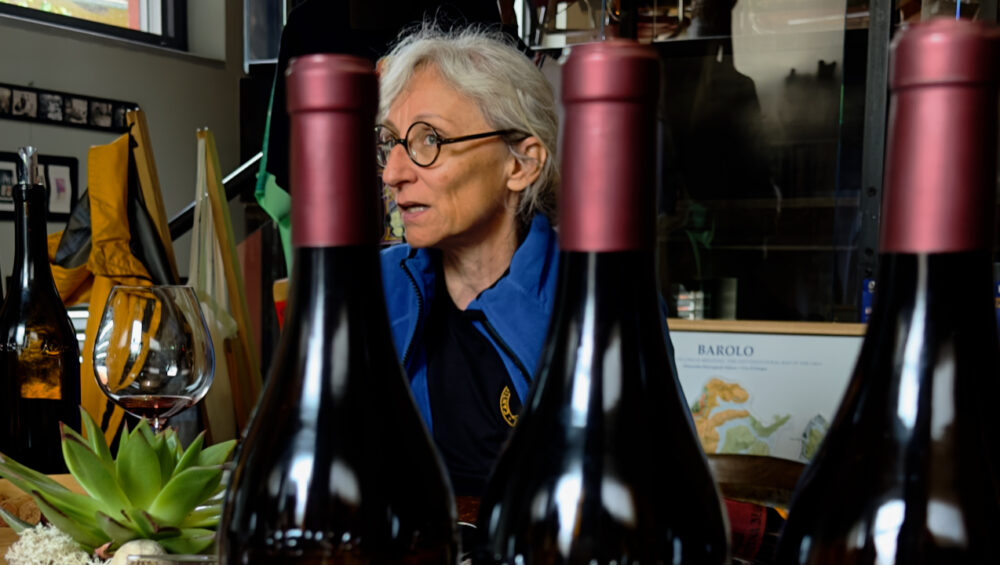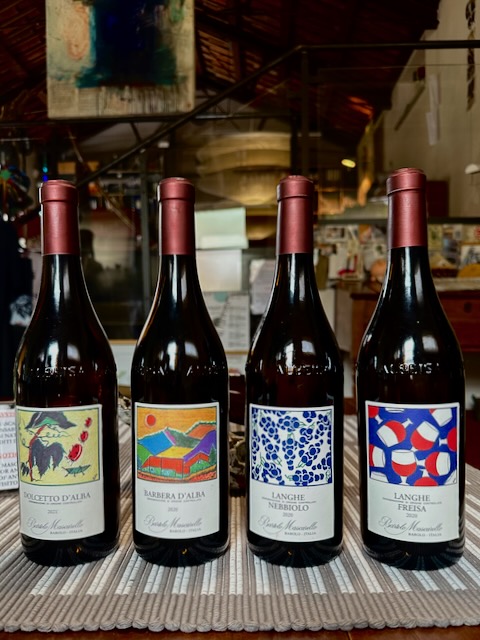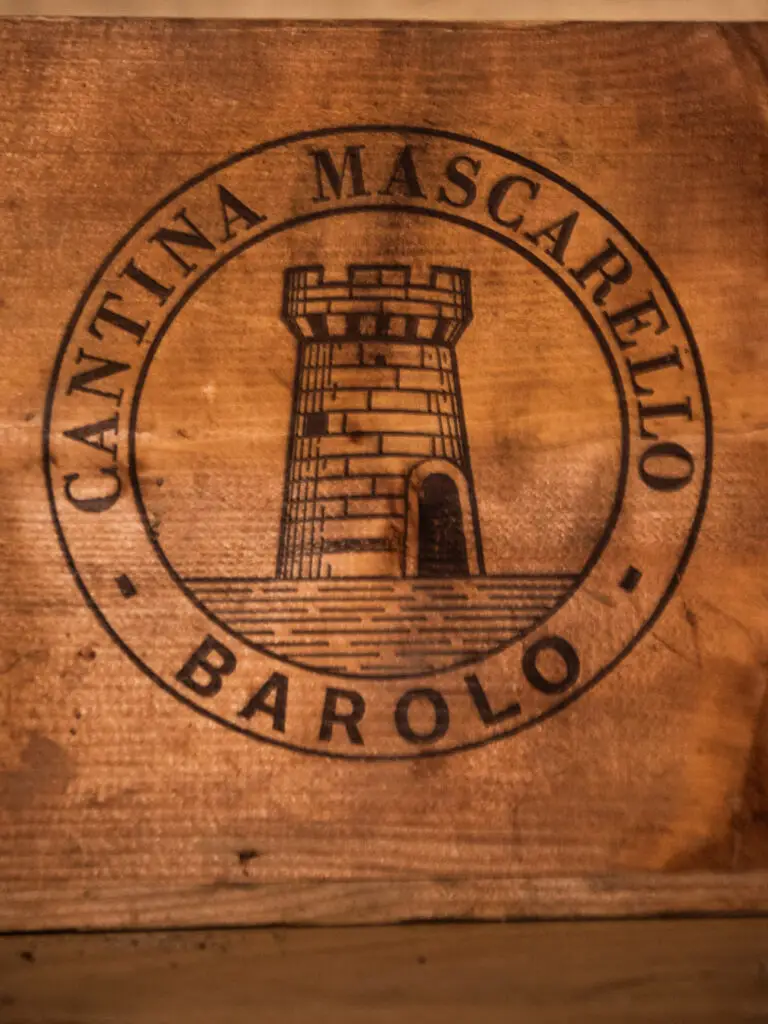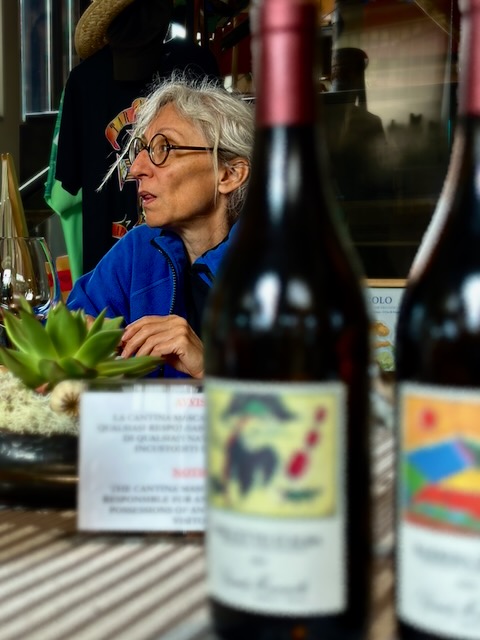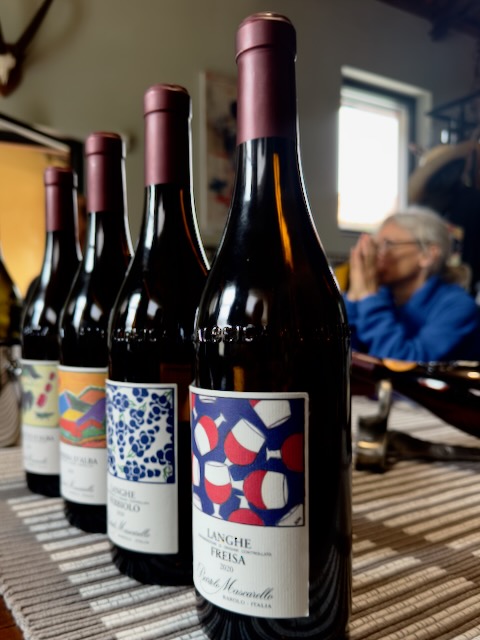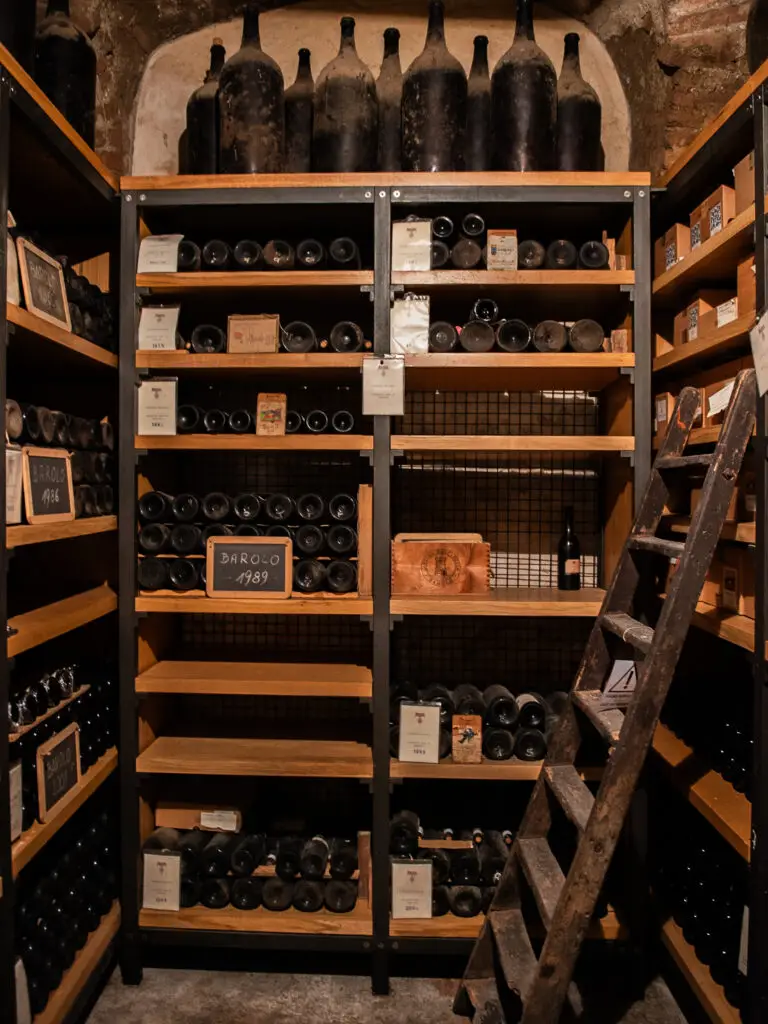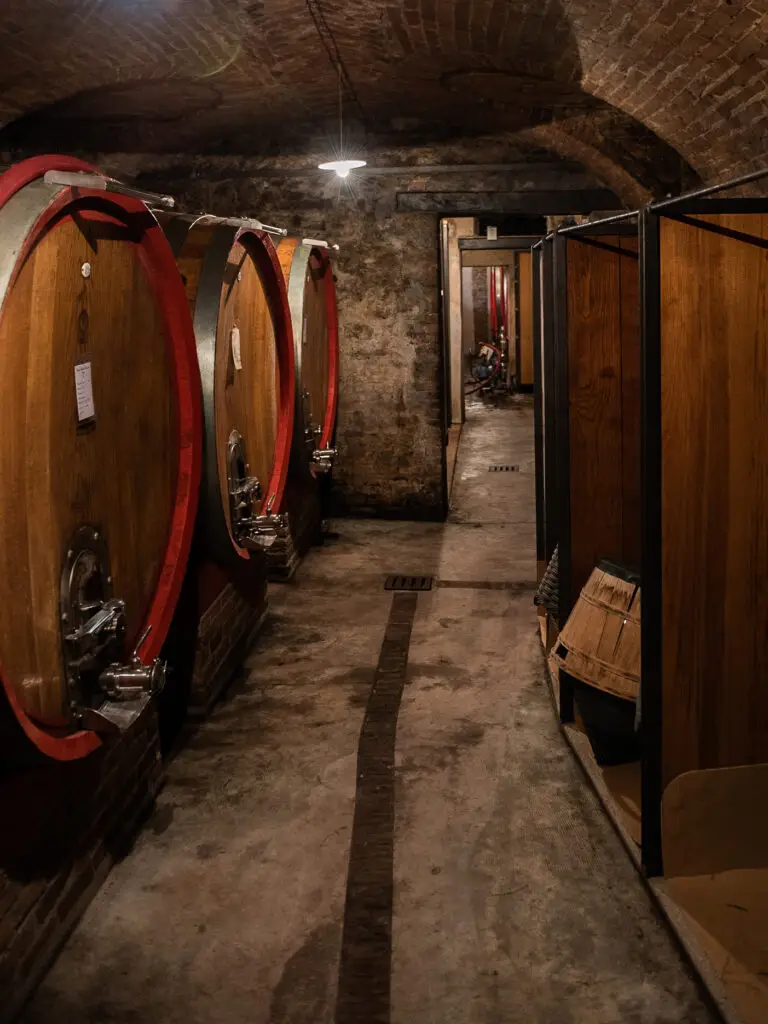Wow! One of the most emotional visits since we are open. Bartolo Mascarello represents for any wine enthusiast the quintessential exponent of genuine, terroir-driven, uncompromised wines. I am not exaggerating in saying the Bartolo is part of the history not only of Barolo as wine but also as a municipality around which a whole agricultural world has been shaped day by day. Despite his disenchanted retirement from the public scene at the time in which the world of wine in Langhe was abruptly taking a completely different direction towards the American market he has anyway represented the resistance of a restricted group of people who treasured the preservation of a land which had been passed on from generations with respect and righteousness. Bartolo has always been a man of strong ethics: he believed in the anthropological values of his land and his work, in the respect of nature and of honest work, he was a stern intellectual which is surely missed these days.
Maria Teresa, his daughter, is coherently with her father philosophy carrying on the legacy of the Mascarellos in the small, fascinating cellar of Via Roma 15 in Barolo. Big botti and stainless-steel tanks share their space with authentic museum relics like the showcase of all the winery’s labeled, especially those magnificent pieces of art that were Bartolo’s hand-drawn labels like the worldly-famous No Barrique No Berlusconi that especially nowadays is one of the most sought-after by collectors.
We tasted the wines with Maria Teresa and Emanuele. Maria Teresa is a wonderful person, animated with passion and love for her father teachings and legacy, she has very humbly guided us through the glasses of wines but honestly enough once you get the chance to seat at the same table with such educated minds, we didn’t spend much time about the wines themselves. Our talks roamed around everything concerning history, culture, agriculture, anecdotes. As far as farming in concerned, Bartolo’s Mascarello philosophy, which has never changed during decades, has never been so up to date: they eschew of course any chemical products, they encourage cover crop to grow between the rows of vine to protect against erosion and improve the structure and fertility of the soil, they have never practiced any green-harvesting nor trimmed the canopy; the latter practice is widely spreading these years of excessive warmth during summers. Plus, they have always fought against the use of heavy machines among the vines because of their damaging of the topsoil making it too compact not allowing it to breath nor the water to penetrate.
Talking about wines; we tasted Langhe Freisa 2021, Barolo 2018, Barolo 2019
The Freisa is for the first time vinified still, without bubbles, because according to Maria Teresa, the difficult, extremely hot weathers of last years had made it more difficult to stabilize in the bottles. This Freisa is beautiful in its hearty soul and its elegant tannins and his savory, chocolate finish.
The Barolo 2018 is a wonderful quintessential example of the meager vintage: tannins are subtle, elegant, sweet, the fruit is luscious and ripe, the body leans freshly and smoothly towards a delicate seamless sapid finish. Great wines to drink now!
Barolo 2019 is just the opposite. It bears a ‘’horsepower’’ mightiness in both mouthfeel and smell. The wine is taut, powerful, and energic. The future ahead looks bright for this classic Barolo.
